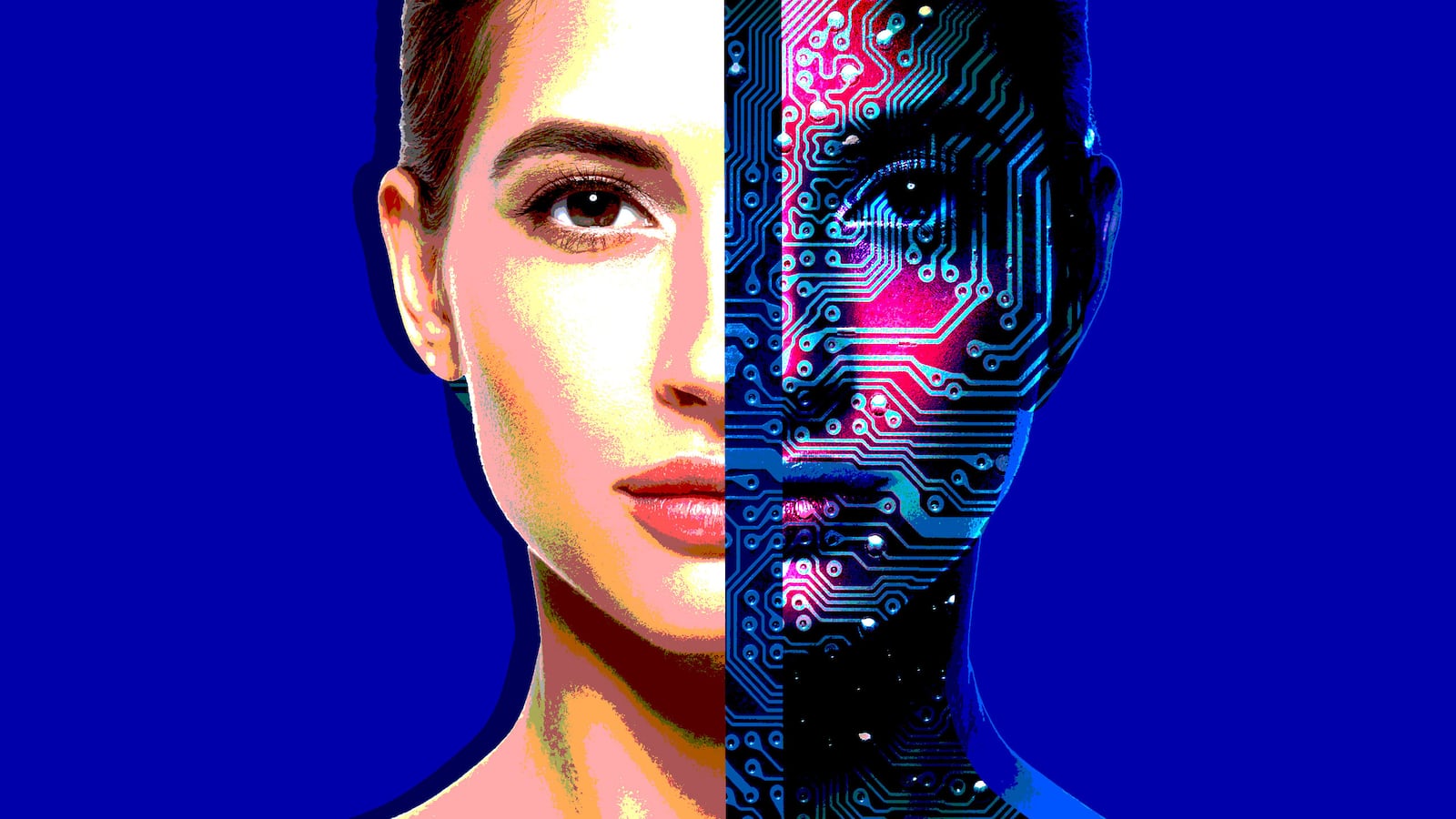In Greek mythology, Prometheus taught man how to farm. But when he gave man fire, the gods felt he had gone too far. And so as punishment, Zeus chained Prometheus to a rock where every day an eagle would come and eat his liver, which would regrow because he was immortal.
Prometheus’s story is about mankind’s dominion over its world and how much power is too much. But counterintuitively it is Zeus, not Prometheus, who many artists and writers in the last thousand years have sided with. The story is relevant today because humanity is at a turning point, and two opposing forces are locked in a war that is just beginning to come into being. On one side are our innovations and the power that comes with them, and on the other side is the fact that when it comes to us ourselves, there seems to be no innovation.
For tens of thousands of years, technology has been directed outward—on the world at large. Now, for the first time in human history, technology has reached a point where it can be directed inward—back on its creators. Technology has found something new it would like to change: Us.
In 2010, researchers at the University of Colorado performed what they thought would be an unremarkable experiment on lab mice. They injured the mice’s limbs and injected them with stem cells to heal the damage. Then something strange happened. The muscles in those little limbs nearly doubled in size and strength. Not only that, the muscles stayed that way for the life of each mouse, defying even the aging process itself. Essentially the researchers had accidentally created a race of “super-mice.”
Another experiment in 2001 involved injecting human stem cells, of all things, into the brains of aging mice. Soon after, the mice began to perform better on the Morris water maze test. In other words, the stem cells had made them smarter.
When people think of stem cells, they usually think of a potential cure for diseases like Parkinson’s. But there is another, potentially far darker, use for stem cells, and that is on people who are perfectly healthy. It is this application, fundamentally changing the human body, that gave me the idea to write my novel, The Prometheus Man.
We’ve all heard stories about a mother who’s able to lift a car off her child as her body mainlines adrenalin. Imagine using stem cells to triple the size of a person’s adrenal gland. You’d produce something on par with one of those people who are so zombified on PCP that they get shot three times and still manage to beat up six cops. The military uses for such a technology, the parts of the human body that could be “improved,” pass through your mind like something from a sideshow in a bad dream.
And we haven’t even gotten to the most lethal part of the human anatomy: the brain. There’s a fixed amount of space in our skulls. Theoretically by growing the parts of the brain you want enhanced, like the part that controls reflexes and coordination, you could also shrink the parts of the brain you want diminished, like, say, the part that contributes to a person’s remorse.
Bear in mind things need not actually play out this way in the real world. As I attempted to capture in my book, it is often the attempt itself that is the true source of horror.
The 20th century saw the innovation of weapons of mass destruction. It also saw innovations in ideology that cheered the destruction of 200 million people, roughly 8 percent of the world’s population, in wars and oppression. But the technologies in their infancy today take things in the opposite direction. By augmenting our bodies, they increase our ability to commit more intimate—and thus more covert—violence. They take us back to our roots. And they do it at a time when wars aren’t fought by equals on a battlefield. They’re often quick attacks—over before most people know about them—where the goal is to inflict maximum despair not on the target but on the people viewing at home.
But it doesn’t end there. Technology can weaponize the human body, but with the internet, governments and other actors have the ability to go after the mind.
The internet is the greatest source of data on the human spirit in history, and it’s about to go even deeper with virtual-reality. People’s hopes and dreams, their fears, their hatreds, it’s all right there. And over the last decade, we have witnessed the rise of something perfectly designed to make use of it: algorithms. Algorithms regularly outperform human analysts on Wall Street. They also make more accurate diagnoses of mental illness than psychiatrists. The algorithms are so much more effective than the doctors that the doctors underperform even when they’re given the results of the algorithm.
Algorithms are getting so good at predicting human behavior that they have the power to identify not just undesirable urges and interests but the activities that predict those undesirable urges and interests. Serial killers, terrorists, dissidents—it’s highly likely that their online habits cohere around some common patterns of behavior. Theoretically we could understand the direction of their lives better than they understand it themselves. And once you understand something enough to predict what it will do, you can control it.
Yet intervention isn’t the real goal. The real goal is to go much further. It is to alter something fundamental to who we are: our experience of reality.
Research is uncovering patterns in our most primal needs that can be exploited. If that sounds paranoid, consider Robert Cialdini, PhD. Dr. Cialdini wrote a bestseller, Influence: The Psychology of Persuasion, about the ways others play on our programming to create impressions that aren’t true and compel behavior that isn’t in our interests. The stated goal of his book was to free us from this manipulation, but this ideal didn’t stop Dr. Cialdini from becoming an adviser to the Obama campaign. Obama’ objective merits were evidently insufficient on their own. The good doctor felt the candidate’s presidency was so thoroughly in your best interests that he had no qualms about using the dark arts to place his thumb on the scales of your mind.
There’s a conclusion here. People start out simply wanting to understand reality, but in truth they always hunger to change it.
But Dr. Cialdini was targeting something voluntary: voting. Consider, by contrast, the Reid technique, a nine-step algorithm of sorts that the FBI uses to pressure suspects during an interrogation. The Reid technique has been tested and refined on tens of thousands of suspects, but it has a bug. It produces false confessions. In other words, the technique is so effective it causes innocent people to sign away their freedom, just to make it stop.
The Reid technique, at the height of its powers, creates a false reality in the suspect’s mind more powerful than the fact-based reality outside it. Forget changing someone’s body. The Reid technique achieves the most fundamental change of all. And it is an innovation of perhaps the most frightening kind of violence, the kind that gets us to hang ourselves.
Manipulating our bodies, manipulating our minds—these are pretty scary things. In response, there are those who believe the ethical issues raised by these new technologies can be resolved through debate. But when have we ever done that before? Nuclear weapons could destroy the human race, and yet they still came into existence. Strike that. It was rational for some countries to bring them into existence. That says something pretty stark about us. That says that the larger truth may be the scariest thing of all: we’re not really in charge. It is us—our morality, our virtue—that lags technology, not the other way around. Maybe there was a reason that Zeus didn’t hash things out with Prometheus, but simply put a stop to him altogether.
I love to read things that were written long ago—centuries ago, even thousands of years ago. I’ll tell you what got the hook in my mouth. I realized that many of these writers were just like me. And I felt this … connection. Because it meant the things that frustrated me and fascinated me weren’t unique. They were a part of what it means to be alive.
But there’s a corollary to this. If someone who lived hundreds or thousands of years ago is just like me—and also you, assuming you’re as retrograde as I am—then that means to a large degree we have stayed the same. Yet in the meantime, aided by technology, our power grows. Think about what that means. Technology doesn’t just shrink the world to our convenience. It is magnifying what’s inside us. And in freeing us from a hard-scrabble existence where we have to work 12-hour days to survive, it is giving us room to express our deepest selves.
Our deepest selves, though, are deeply problematic. For the last 50 years, the developed world has experienced unprecedented peace, prosperity and technological comfort. And this is the result. In the U.S., one in four women is taking a prescription drug for mental health. According to the Centers for Disease Control, life expectancy isn’t increasing. It’s just dropped. Data from the Census and the Bureau of Labor Statistics shows 25 percent of men age 25 to 64 don’t work full-time, and most of them are no longer looking for a job. You would expect people to have become less violent. Instead, starting in the ’70s, there was an explosion of violent crime, which was eventually brought under control only by incarcerating the highest percentage of our citizens of any country in the world. Meanwhile, according to the General Social Survey, from 1972 to 2006, women rated themselves less and less happy each year, as by almost every objective measure their lives improved.
Because we are more free from hardship than anyone before us, you would expect us to be healthier, wealthier, and wiser. But in significant ways, we have become the opposite. Why? Because we’re flawed. Because our deepest selves want things they perhaps were never meant to have. And for many of us, prosperity has simply given us room to go to pieces.
The world, it turns out, isn’t infinitely progressive. It’s mean-reverting, and not due to the impersonal factors of randomness or scarcity, but because of the most personal factor of all: us.
There are those who believe that people are so flawed that society must step in and control them with vast amounts of regulation, i.e., with force. But there’s a limit to this, and we can see it by looking at Europe. Europe, with its giant welfare/regulatory states, has higher unemployment than the U.S., lower GDP growth, far less technological innovation, and fertility rates that can only be described as self-repeal. Every problem the U.S. has, Europe has it 20 percent worse. And the funny thing about all that regulation? In Europe, the informal economy, i.e., the part that doesn’t pay taxes or obey the law, is bigger than it is in the U.S., much bigger. So instead of making people more moral, the attempt to control them has only driven them underground. At a certain point, idealism breaks itself on the reality it is attempting to bend.
The Europeans have attempted to take the risk out of life. Instead they’ve taken the life out of themselves.
What emerges from all this, and what’s so amazing about the world, is that life is something we just can’t win. It seems there will never be a war to end all wars, enough wealth to end all poverty, or a perfect order to end all disorder. And there will never be a formula for the human spirit. Experts can’t solve us. We can’t solve us. That thing technology is magnifying, the gravity holding it all together, is the thing we control least of all.
Joe Kennedy once described his children as “hostages to fortune.” I think of my own hostages to fortune, a tough little two-year-old boy and the girl currently incubating in my wife. The world may have its problems, but it really is a wonderful time to be alive. One thing, though, is certain. As technology and prosperity begin to enhance not just our stuff but us ourselves, the future will increasingly be one of our own creation. The problem is that we seem to be the biggest variable of all. And that variability is something we never have been able to suppress or engineer away. That variability, in fact, seems to be a large part of what it means to be alive.
As for Prometheus, Hercules eventually came and broke his chains. Mankind, it seems, will always find a way to set him free.
Scott Reardon is a graduate of Georgetown University and Northwestern Law. He currently works at an investment management firm in Los Angeles. The Prometheus Man is his first novel.






